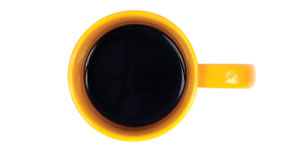Health
3 min Read
Kicking your teen’s caffeine addiction to the curb

April 23, 2013
Health
3 min Read

April 23, 2013

 If your teen is already addicted to caffeine-laden
If your teen is already addicted to caffeine-laden
drinks like coffee and pop, it might be time to have “the talk”. Caffeine is the most widely consumed stimulant in the world. Sure, your teen might be bigger and taller than you now, but caffeine consumption is not recommended for kids or teens because its use could come at a cost.
“Teens should not be having caffeine in the forms of soda, coffee, tea or energy drinks,” says Simone Finklestein, a nutritionist who specializes in paediatrics.
She points out that caffeine is addictive and classified as a drug. It has the effect of increasing heart rate, causing jitters, insomnia and upset stomach. Caffeine is also a diuretic, which increases urine production and can cause dehydration.
“Besides these side effects, you have to ask whether consuming these drinks comes at
the expense of healthier drinks kids need, like water, which is hydrating, and milk, which has calcium,” says Simone.
If your child is using the stimulant to help them study for exams and write papers late
into the night, there are a few substitutes you can suggest. First, encourage your teen to eat a well-balanced diet and avoid skipping meals. Adding exercise and sufficient rest will also give them the energy boost they need to get through a schedule packed with projects, socializing and extra-curricular activities.
The trend toward increased caffeine consumption has recently become more troublesome. Health Canada says it has “received a number of reports of suspected health problems associated with energy drinks. Symptoms have included irregular heartbeat and
nervousness.” Especially scary is the potential link between high-energy caffeinated drinks
and three teen deaths in Canada since 2006.
“It’s definitely more common for kids to consume caffeine these days,” says Simone. “It’s
more readily available in a variety of forms, and some energy drinks are marketed to younger adults. In the United States, for example, certain snack foods are even designed to contain high levels of caffeine.”
Keep in mind that there is already caffeine in everyday snacks like chocolate. “It’s important to explain that if they are having chocolate and an energy drink, it’s too much,” she says.
Simone recommends some tips for parents concerned about helping their teen curb their
caffeine habit:
Originally published in ParentsCanada magazine, May/June 2013.